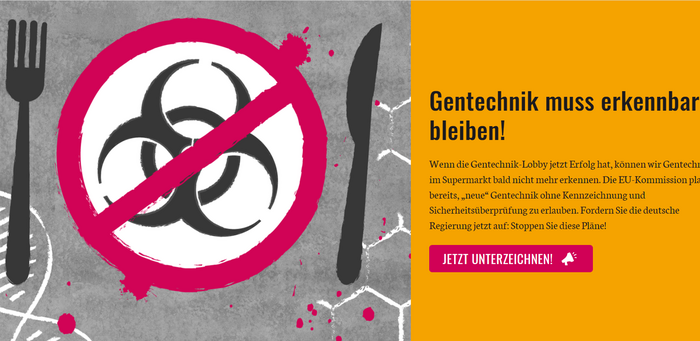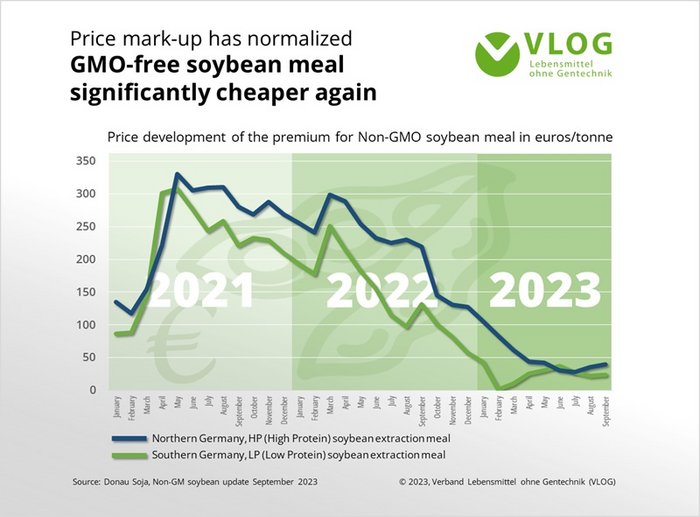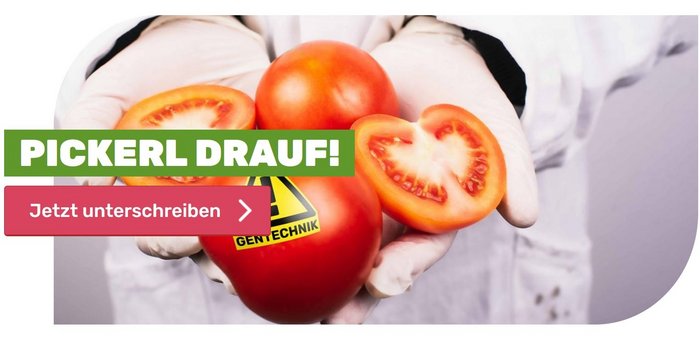News archive

Anuga event by VLOG and AöL on 10 October 2023 on GMO labelling
Clear and full GMO labelling is a must for consumers and the food sector. At the Anuga fair, VLOG and the Association of Organic Food Processors (AöL) want to show together with food manufacturers and retailers what is at stake with the EU Commission's plans for new GMOs.

"Ohne Gentechnik" at the International Green Week food fair 2023
The German Association for Food without Genetic Engineering (VLOG) has used this year’s International Green Week food fair in Berlin (IGW) to communicate the importance of "Ohne Gentechnik" (Non-GMO) business to politicians and to warn them against lowering EU standards. German Agriculture Minister Özdemir also took a stand on genetic engineering.

420,000 signatures for the preservation of food without genetic engineering
In front of the Federal Chancellery, exactly 420,757 signatures under the petition "Not behind our backs - no free pass for new genetic engineering in our food!" were handed over to Parliamentary State Secretary Bettina Hoffmann of the Federal Environment Ministry.

The organic sector’s appeal: Preserve EU genetic engineering regulations!
The German organic associations, together with their umbrella organisation Bund Ökologische Lebensmittelwirtschaft (BÖLW – Organic Food Industry Federation), have again jointly opposed the EU Commission's plans to soften the EU's genetic engineering rules in a resolution.

Ethics Committee: Genetic engineering holds little promise against climate crisis
The Swiss Ethics Committee on Biotechnology (ECNH) considers the possibilities of new genetic engineering such as CRISPR to contribute quickly to climate adaptation in agriculture overrated and warns against betting on them.

Foodwatch campaign: Genetic engineering must remain identifiable!
In a new online campaign, the consumer organisation Foodwatch calls on the German Minister of Agriculture Cem Özdemir and the German Minister of the Environment Steffi Lemke to clearly rebuff the EU Commission's plans to deregulate new genetic engineering.










